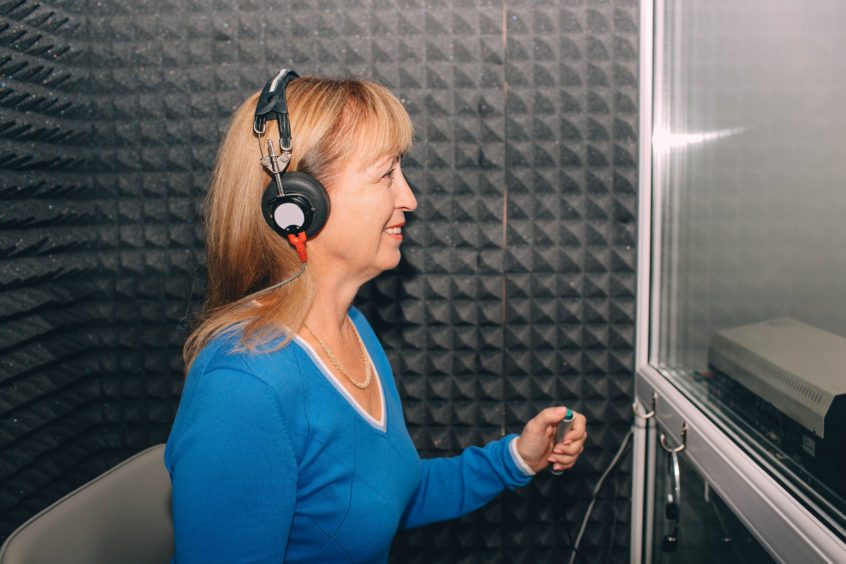Why Hearing Loss Happens as We Age
May is Better Hearing and Speech Month, a great time to learn more about hearing and hearing loss.
One of the biggest misconceptions about hearing loss is that it’s a problem only older adults experience. According to the National Institute for Deafness and Communicative Disorders, about two to three out of every 1,000 children in the United States are born with a detectable level of hearing loss in one or both ears.
About 18 percent of adults aged 20-69 have speech-frequency hearing loss in both ears from among those who report five or more years of exposure to very loud noise at work, as compared to 5.5 percent of adults with speech-frequency hearing loss in both ears who report no occupational noise exposure.
Other key facts include:
- One in eight people in the United States (13 percent, or 30 million) aged 12 years or older has hearing loss in both ears, based on standard hearing examinations.
- About 2 percent of adults aged 45 to 54 have disabling hearing loss. The rate increases to 8.5 percent for adults aged 55 to 64. Nearly 25 percent of those aged 65 to 74 and 50 percent of those who are 75 and older have disabling hearing loss.
- About 28.8 million U.S. adults could benefit from using hearing aids.
Why do adults lose their hearing?
For those not born with hearing loss, the question is why do adults lose their hearing? There can be several reasons why, but most often, overexposure to loud noise over time can lead to a painless but disabling condition of noise-induced hearing loss. Exposure to extremely loud noises, like the blast of a gunshot or fireworks or an explosion, can be responsible for sudden hearing loss.
This exposure can slowly destroy the tiny hair cells in the ear that help conduct sound, and once they’ve been destroyed, there’s no bringing them back.
Other causes of hearing loss include:
- Genetics—Hearing loss can be inherited from your family.
- Presbycusis—This is a sensorineural hearing loss that happens as you get older. Speech may start to sound muffled or unclear. You may have to ask people to repeat themselves or turn the TV up louder to hear it.
- Otosclerosis—This is a middle ear disease. It makes it harder for the tiny bones in the middle ear to move and causes a conductive hearing loss. This condition is often treated with surgery.
- Ménière’s disease—This is an inner ear problem. The cause of Ménière’s disease is not known. It usually starts in people between 30 and 50 years old. A person with this disease will often have sensorineural hearing loss. Dizziness and ringing in the ear are common. Sensitivity to loud sounds may also happen. The hearing loss comes and goes, but over time some loss becomes permanent.
- Autoimmune inner ear disease—An autoimmune disorder is one where your body attacks itself. This type of hearing loss happens fast. See your doctor immediately if you suddenly lose your hearing. Medical treatment can help keep hearing loss to a minimum.
- Ototoxic medications—Some medicines may cause hearing loss. Talk with your doctor about the medicines you take. Some medicines that may impact hearing are very common and can include antibiotics, aspirin, loop diuretics, and chemotherapy drugs.
- Acoustic neuroma—This is an example of a tumor that causes hearing loss. It can also cause ringing in your ear and a feeling that your ears are full. Medical treatment is required for an acoustic neuroma.
- Physical head injury—A traumatic brain injury (TBI), hole in the eardrum, and damage to the middle ear can cause hearing loss. Medical treatment is also required for these issues.
If you suspect you have a hearing loss, see a doctoral-level audiologist. These hearing professionals have the education and experience to determine the type of hearing loss you have, how severe it is, and whether hearing aids might help, or if you would benefit from a referral to a specialist.



